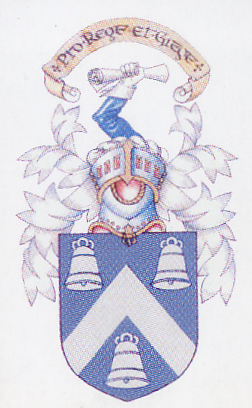|
Andrew Young, second son of David Young, for more than fifty years a
most efficient teacher in Edinburgh, was born in Edinburgh on 23rd April
1807. After passing through a distinguished eight years' literary and
theological course at the University of Edinburgh, he was appointed in
1830, by the Town Council, Head Master of Niddry Street School,
Edinburgh, where he began with 80 pupils, and left with the total at
600.
In 1840 he became Head English Master of Madras College, St. Andrews,
where he was equally successful. He retired from St. Andrews in 1853,
and lived in Edinburgh, where he was for some time the Superintendent of
the Greenside Parish Sabbath School. He died on 30th November 1889. He
was buried in Rosebank Cemetery.
Many of Mr Young's hymns and poems were contributed to periodicals. A
collected edition of these was published in 1876, as The Scottish
Highlands and Other Poems. His poems entitle him to rank in the
first order of Scottish minor poets. Some of his hymns are very sweet.
His "There is a happy land" (q. v.) has attained great popularity. |
There is a happy land, far, far away,
Where saints in glory stand, bright, bright as day.
Oh, how they sweetly sing, worthy is our Savior king,
Loud let His praises ring, praise, praise for aye.
Come to that happy land, come, come away;
Why will ye doubting stand, why still delay?
Oh, we shall happy be, when from sin and sorrow free,
Lord, we shall live with Thee, blest, blest for aye.
Bright, in that happy land, beams every eye;
Kept by a Fatherís hand, love cannot die.
Oh, then to glory run; be a crown and kingdom won;
And, bright, above the sun, we reign for aye.
Published in 1838 |
His wife Maria Mivart died in December 1847 aged 20 and their only
daughter Maria Mivart died in March 1851 aged 3 years and 4 months.
He was married again in 1851 to Christina Allen and they had a
daughter.
The
Madras College Magazine
for January 1890
reports:
Reminiscences of Madras College
MR ANDREW YOUNG
On Sunday, 1st Dec., 1889, Mr Andrew Young, 40 years
ago, English Master of the Madras College, passed to the "Happy Land."
In the days of his Mastership, Saturday was a half-holiday. From nine
till twelve o'clock the classes were engaged, chiefly with religious
instruction. One Saturday the writer well remembers, when the whole
English school was assembled in the West-room, the scholars were all
supplied with leaflets on which was printed Mr Young's hymn, composed
not long before, "The Happy Land," and Mr Young taught the tune by ear
till the school could take it up and join. This was the introduction to
St Andrews of the hymn which since has been sung by children all over
the world, not only among English speaking people, but also among those
of many foreign tongues. Not many years ago, the writer was with his old master
who was feeding his birds in Princes Street Gardens, and noticed a
gentleman leading by the hand a little girl who was evidently much
interested in the proceeding. He spoke to the gentleman and learned that
he had come from the "Wild West" of America where his little girl had
learned to sing "The Happy Land," and having heard that its author was
to be seen at this hour in the gardens, he had brought his daughter to
look on one whose little work had been to her the source of many
pleasing and profitable thoughts. Mr Young spoke to the pair, and
afterwards the writer walked with him over George IV. Bridge to the
works of Messrs Nelson, the well-known publishers, listening all the way
to Mr Young's story of the origin of the hymn, and of the many letters
he had received, from all parts of the world telling of the interest his
hymn had excited and the good it had done.
Mr Young was a good teacher but not of the modern type.
Enthusiastic about everything relating to English and English literature,
one cannot fancy him taking any interest in a football match or organising
a cricket eleven. Precise and accurate he was in all his ways, in the eyes
of many prim and pedantic. An old pupil tells that walking with him one
day in Queen Street, Edinburgh, they came on a knot of excited youngsters.
"What's the matter boys?" asked Mr Young. "A lum afire, Sir" was the
excited reply. "Say chimney my little man, say chimney" answered Mr Young
patting the boy gently on the head. After leaving St Andrews, Mr Young was
always pleased to meet any of his St Andrews pupils, and nothing delighted
him more than to have the conversation turn on the work of Sabbath Schools
and the influence of hymns on the minds of children. Now, in that happy
land, bright above the sun, he reigns for aye.
T. B.
|

